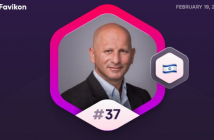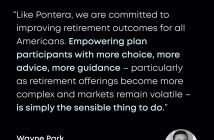Policy and PIL Conversation with Munich Re Israel representative Dikla Wagner on discovering start-ups and innovation

Dikla Wagner, Munich Re’s head of tech scouting
Dikla Wagner is on the hunt for new technologies. As Munich Re‘s head of tech scouting in Israel, she seeks our new technologies that can be put to immediate use by Munich Re, its subsidiaries and its clients – insurance companies. She is also looking for something else: disruptive technologies – some kind of innovation that will change the trajectory of the industry for years to come. That is no easy task, and so Wagner meets with hundreds of Israeli startups each year, checking to see which one can offer the right product or software to Munich Re and its clients. Most of her work is done in Israel, her goal being to put Israel on the map in terms of its innovative skill. “In Israel I am the representative of Munich Re, but as far as the world is concerned, I represent Israel”, says Wagner – “The job is split into two – working with the ecosystem in Israel and working with Germany and the US. The aim is to build new business models and new products for Munich Re and for its clients”.
According to Wagner, tech companies in the Israeli start-up scene have a good understanding of the needs of the local insurance companies, but less about reinsurance, “and thus our job is to also bring knowledge from Munich Re to Israel”.
“Before making the connection, we carry out work with the start-up, in order to put together precisely its value proposition for Munich Re”, says Wagner. “We sometimes need to really alter the start-up’s value proposition. We try to adapt the technologies to the business needs and find a ‘champion’ for the startup, in other words the official at Munich Re who the technology can serve and for him to work with us in assimilating the technology or building the new product via him”.
- What is it you are looking for exactly?
Wagner: There are insurtech technologies such as underwriting or claims for insurance companies. But our viewpoint is wider and more comprehensive. We are also looking in other areas, such as IOT (internet of things), mobility, cyber, energy, climate, privacy enhancement and so on. Our strategy is split into two. The first is for the immediate term, and the second for the long term, to try to understand where disruption in the sector will come from. What will be the business models of the future? Which products are going to be here in the future?
Morli Dory: Are you examining future risks and how they can be insured?
Wagner: Yes. One of the issues is understanding new and unfamiliar risks or technologies that relate to insurance, but not necessarily a new insurance product. These are exactly the questions that we are investigating together with the ecosystem – what direction is the world going in?
For example, we are working with Israeli startups on “performance grantee” insurance. We are trying to examine wherein the technology, there is an unknown risk, or where the algorithms might not predict the outcome as promised. In practice, we insure the start up’s technology or algorithms.
The same unit drawn up the first Hyperloop Transportation Technologies Risk Report after analyzing the risks and challenges. We are planning to have a strategic partnership with HyperloopTT to develop an insurance concept and integrate an enterprise risk management system. The system will allow HyperloopTT to actively manage enterprise risks.
- It is very rare for a company operating in the sector to itself bring about disruption. Insurance companies usually look for technology for immediate use, with companies outside the sector being the ones that bring technologies that create new business models.
Wagner: There is internal disruption that is being led by Munich Re and there is also disruption that comes from outside. We seek to also work with new companies who can bring disruption to the sector.
- What examples of technologies that you have invested in can you present?
Wagner:
One of the outstanding examples is Munich Re’s investment in NEXT INSURANCE, who is offering tailored, digital insurance solutions to small and medium-sized enterprises (SMEs) in the US market. Munich Re invested 1/4 billion dollars in the company. The aim is to expand Munich Re’s footprint in these worlds and continue leading in the digital world.
Morly: The investment in NEXT raised a discussion about a new insurance model: the MGA model. Can you share more?
Wagner: A managing general agent (MGA) is a specialized type of insurance agent or broker that has been granted underwriting authority by an insurer and can administer programs and negotiate contracts for an insurer. An MGA’s functions can include binding coverage, underwriting and pricing, settling claims, all of which are typically carried out by insurers. The MGA model is one which is indeed growing. The special nature of this model it its ability to leverage the use of data to support underwriting and pricing processes and creating customer-adapted automatic processes. Digital products usage have increased during the Corona period. I predict to see acceleration in this space.
Dory: MGA is a model that is convenient for startups, as it requires less regulation relative to the regulation required for insurance companies.
Wagner: An MGA also needs to be licensed. The challenge that we are seeing is in distribution and sales. At the end of the day, in order for an MGA to succeed, it needs more and more customers.
Another example for technology innovation is Munich Re’s Remote Industries. It is an hurricane tool suite uses advanced technologies to help insurers better manage the claims process – and be more responsive to homeowners. High-resolution aerial imagery, remote sensing, Artificial Intelligence (AI), and machine learning help improve risk and damage assessment, accelerate response time, and deliver a customer experience. How do we do that? Hundreds of property and weather data points are sourced for each location, ensuring accuracy in pre-event hurricane damage predictions and post-event hurricane damage detection. The solution Streamline the property claims process after a natural catastrophe and help your homeowners recover faster. This solution requires a complex challenge – both in extracting information from the image and translating it into physical and monetary damage. Remote sensing has partnered with an Israeli base company.
- What is Munich Re’s mission in this world? Investing and making money or making use of the technologies themselves?
Wagner: Munich Re is a strategic investor, and thus the collaboration process includes defining a clear value proposition as the initial stage in the process. We have been able to significantly support our customers, including assisting other insurance companies, in carrying out investments in Israel. One of the things that we have done in Israel is developing support in POC processes for Munich Re and its customers. The automatic process allows us to examine the technological design of the products, such as checking technological suitability. We are working with an Israeli partner and this enables us to shorten and reduce the cost of the checking process and introduce technologies more rapidly.
- Where else in the world is Munich Re operating in a similar manner?
Wagner: There are scouters and investment units in the USA, in Germany, in China and of course the representation here in Israel.
- How many startups do you see per year?
Wagner: I am meeting around 400 startups this year, of which 15%-20% are clearly in the insuretech field. Finding special technologies for reinsurers is more complex and rarer.
- What is more important from your point of view – technologies for immediate use or identifying in advance technologies that will bring about disruption in the future?
Wagner: From my point of view, disruption needs to come first. To go into the unknown and bring something new is exciting. But we also need to bring something that is of immediate value to the organisation. In a utopian world, I would only be looking years into the future – where it is possible to go wild and put together very special propositions.



